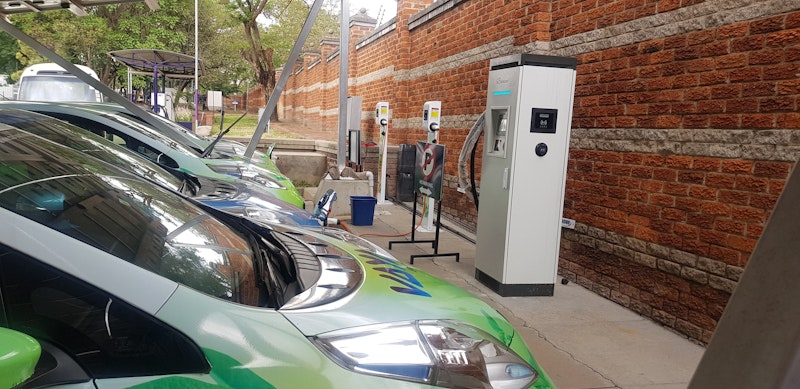COVID may still be the top news story these days, but something else that’s been trending involves seemingly greater interest in electric vehicles. The reasons include a significant uptick in the purchase of electric vehicles (EVs). Edson Electric institute reported an 81 percent increase in electric vehicle purchases from 2017 to 2018. Green Car Reports says American interest in electric vehicles grew during the pandemic. Meanwhile, President Biden wants the U.S. to move away from fossil fuels as a way of combating what he calls man-made climate change. Some people are just tired of the volatility of the oil market and having to rework budgets to factor in changing fuel prices. I drive a diesel and I’m starting to fret over what I might be paying if Biden gets his way. That said, I can understand why some prefer to plug in their vehicle at home or at work and always have a car that’s fully charged. But where do you charge your electric vehicle, especially if you’re not in California or heavily populated areas where charging stations are most common?
“Lack of charging stations” is among the top reasons why consumers haven’t made the jump to electric vehicles. Some may argue that concerns about the reliability of the electric grid may be a bigger concern, but there are many news articles and polls showing consumers really are concerned about the possibility of not having a place to charge their vehicles. For example, a Consumer Reports survey published in December 2020 found seven out of 10 Americans see an electric vehicle in their future. However, five out of 10 drivers voiced concerns about how there are “not enough public charging stations.” A 2019 study from Volvo found a similar complaint from consumers.
Here’s what I believe caused this problem: for many years, people in the federal government have been putting the cart before the horse. Electric vehicles, which have been around a long time, are the carts. The charging stations are the horses that power the carts. Rather than subsidizing and encouraging automakers to make electric vehicles, something President Obama got started, and dangling tax breaks in front of consumers that buy an electric vehicle, which Biden may resume in the near future, the government should instead offer more or better tax breaks for manufacturing and purchasing commercial charging stations.
The tax breaks wouldn’t have to last forever, and the charging stations would be available for public and private entities to purchase. I’m certain a mayor or city council member would love an opportunity to say, “Look what I’m doing for you and our environment here in our town square.” I also have no doubt there’s a convenience store owner near a highway wanting to sell coffee, cold drinks, and processed snack foods to owners of electric vehicles while their automobile is charging. Forty-two percent of those surveyed in the Volvo study said they’d like a charging station with on-site coffee shop or café with Wi-Fi.
Owners of electric vehicles may need a snack because chances are they’ll be waiting a long time to charge their vehicle. Times vary depending on the model, but the federal government could attempt to solve this by encouraging R&D and maybe even incentivizing manufacturers and entrepreneurs to find ways that speed up the charging times. Manufacturers should also tackle the problems that exist between cold weather and electric vehicle batteries. Edmunds.com, a website that does research on all types of automobiles, says cold climates decrease the range for an electric vehicle battery. This is another reason for an uptick in the number of charging stations for people in remote parts of, say, the Rust Belt and New England.
At the time I was writing this, I had it in mind to recommend the government also incentivize automakers to make cars that go even further on a charge, but the government must stop somewhere. Plus, consumer demands will most likely force automakers in this direction anyway. I can picture the salesman now. “For just a few thousand dollars more, you can drive an even greater distance while yelling ‘STINKS TO BE YOU’ at the drivers waiting at charging stations.” Meanwhile, automakers will undoubtedly come out with “cheaper” and “more affordable” electric vehicles for consumers, seeing as how tax breaks will have been diverted to people and places making and or offering charging stations.

